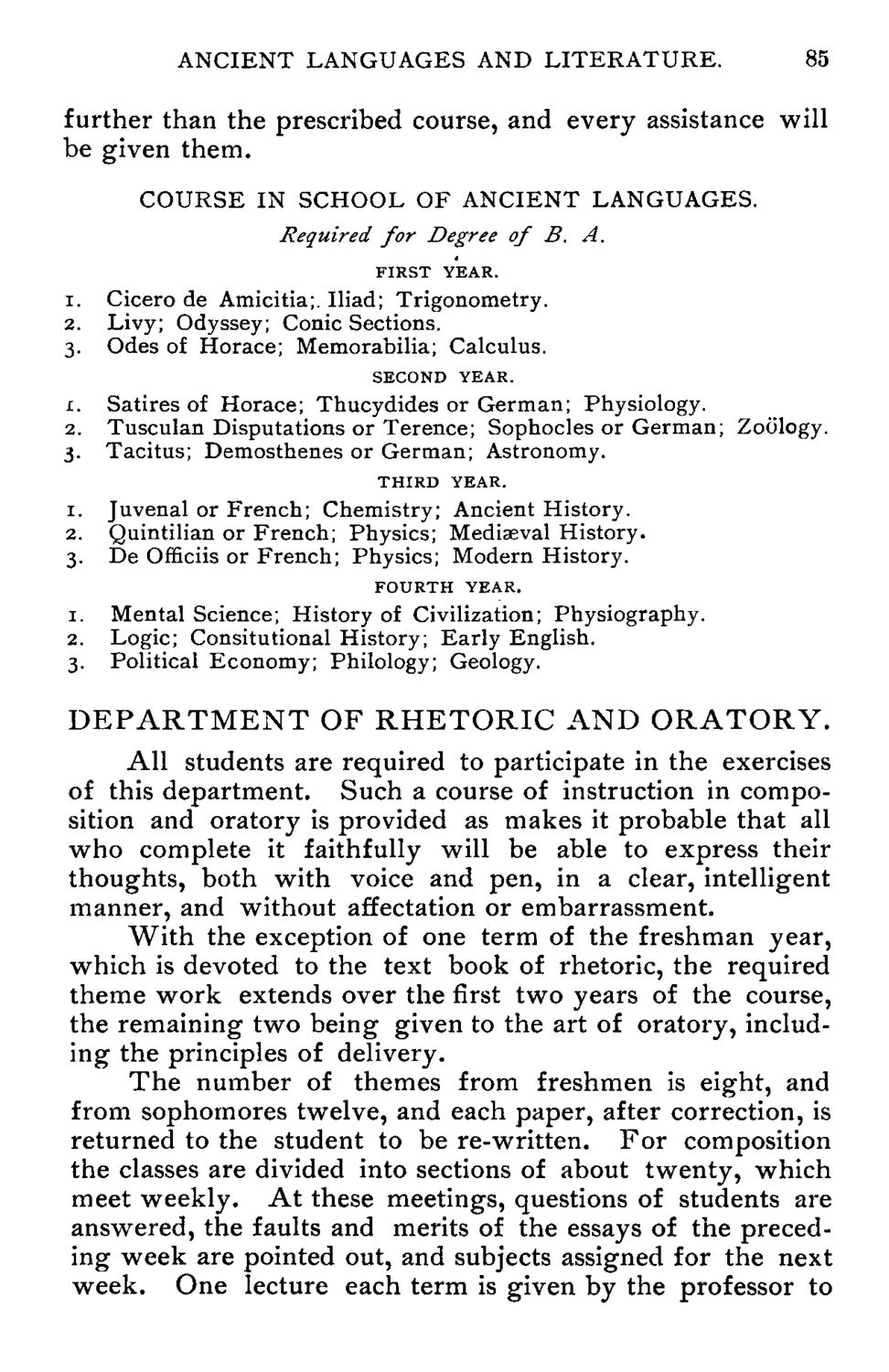Caption: Course Catalog - 1889-1890
This is a reduced-resolution page image for fast online browsing.

EXTRACTED TEXT FROM PAGE:
ANCIENT LANGUAGES AND LITERATURE. 85 further than the prescribed course, and every assistance will be given them. COURSE IN SCHOOL OF ANCIENT LANGUAGES. Required for Degree of B. A. FIRST YEAR. 1. Cicero de Amicitia;. Iliad; Trigonometry. 2. Livy; Odyssey; Conic Sections. 3. Odes of Horace; Memorabilia; Calculus. SECOND YEAR. 1. Satires of Horace; Thucydides or German; Physiology. 2. Tusculan Disputations or Terence; Sophocles or German; Zoology. 3. Tacitus; Demosthenes or German; Astronomy. THIRD YEAR. 1. Juvenal or French; Chemistry; Ancient History. 2. Quintilian or French; Physics; Mediaeval History. 3. De Officiis or French; Physics; Modern History. FOURTH YEAR. 1. Mental Science; History of Civilization; Physiography. 2. Logic; Consitutional History; Early English. 3. Political Economy; Philology; Geology. DEPARTMENT OF RHETORIC AND ORATORY. All students are required to participate in the exercises of this department. Such a course of instruction in composition and oratory is provided as makes it probable that all who complete it faithfully will be able to express their thoughts, both with voice and pen, in a clear, intelligent manner, and without affectation or embarrassment. With the exception of one term of the freshman year, which is devoted to the text book of rhetoric, the required theme work extends over the first two years of the course, the remaining two being given to the art of oratory, including the principles of delivery. The number of themes from freshmen is eight, and from sophomores twelve, and each paper, after correction, is returned to the student to be re-written. For composition the classes are divided into sections of about twenty, which meet weekly. At these meetings, questions of students are answered, the faults and merits of the essays of the preceding week are pointed out, and subjects assigned for the next week. One lecture each term is given by the professor to
|